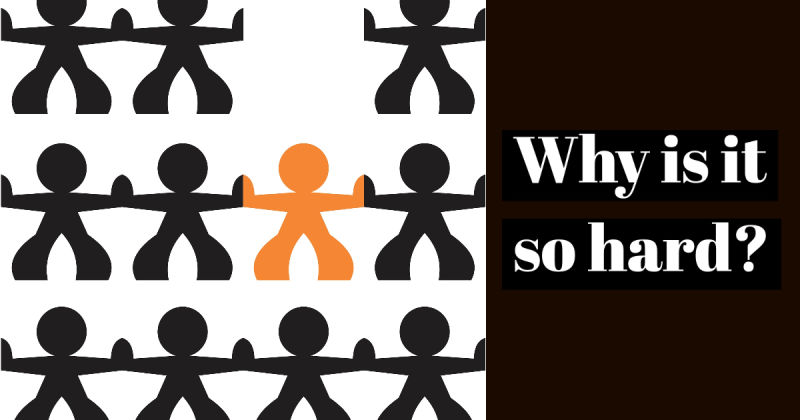4th May 2016 | By Simon Duffy
We cannot expect to see the changes we want to just emerge, naturally. We need to be willing to act differently.

Last year I was lucky enough to attend a ceremony in London where Jean Vanier received the Templeton Prize. Vanier (the founder of L’Arche and many other great initiatives) said to the assembled audience:
“There is a revolution going on. We are beginning to realise that everyone, every human being is important. We are beginning to see that every human being is beautiful. At the heart of this revolution are not the powerful, the wealthy or intelligent. It is people with disabilities who are showing us what is important - love, community and the freedom to be ourselves.”
Jean VanierThis is so true. Despite austerity, despite confused and damaging Government policies, despite a culture of consumerism and ongoing prejudice - people with learning disabilities and their families continue to show that they not only belong, but they can lead the way to a better, more civilised and respectful society.
John O’Brien and Beth Mount, in their brilliant book Pathfinders, describe how the leadership that only people and families can provide, is constantly undermined by systems that keep people poor, drain them of energy and limit their potential. Yet even still, the sun keeps breaking through, for instance, they cite research from Canada where families were asked about the impact of the child with a disability in their lives:
My rather childish response on first reading this was to shout: “Suck on that Peter Singer!” [Peter Singer being the eugenic philosopher who wrote Should the Baby Live? The Problem of Handicapped Infants.]
But it can still seem so hard. It can still seem so unfair. There are so many odds stacked up against families. Money continues to pour into dreadful institutional services - demeaning and abusing people. The system continues to control people, to place barriers before them and burdens on their backs.
Why is it so hard? Why do so many of the systems that should be there to help people get in the way, often doing harm, rather than good?
One concept that many of my friends and colleagues use to describe this problem is Serviceland - they picture the strange systems and assumptions of professionals, managers, social workers as a peculiar world unto itself. A world divorced from community, a world where limited assumptions have become normal, a world where small problems become huge barriers to change.
But while I recognise the truth of this description I also worry that if we are not careful we can end up further burdening families by failing to challenge services and professionals to offer the right kind of support. It may not be normal, but it is still quite possible for professionals to:
In fact I know many people who are doing this and I know many people who welcome this kind of respectful and effective support. Service providers and professionals are not the enemy - even if they spend too much time listening to the system and too little to people and families.
The question is then how can we get better at offering good help and assistance?
The most important answer to this is to put the person and their family in the driving seat. Professionals can only lead the way in emergency situations and for very short periods - ultimately power must reside with the person.
New systems of control, like direct payments and personal budgets, have made a difference here. It is now possible for people to take control and organise the support they need. This is good - it is a valid option - but surely it cannot be the case that the only way people and families can get good support is to do everything themselves.
We know that some service providers are able to offer what I’m going to call Personalised Support:
I know that there are organisations and supporters working like this all over the world. I’ve met them in Scotland, England, Canada, the USA, Finland, Australia and New Zealand and I’m sure they are many more elsewhere. There are not enough, but these kinds of organisations do exist and we need to develop more of them.
It is for this reason that the Centre for Welfare Reform has decided to start actively supporting the kinds of change that will make a real difference to people and families. Not just for people with learning disabilities, but also for older people, children, people with physical and mental health problems and many more. It is time for us to start to learn from each other - to share best practice and to set our standards higher.
To begin this process we have launched an international survey to begin to map and measure good practice in Personalised Support around the world. This first survey is targeted at service providers - we want to find out who out there is trying to do this right and what they’ve achieved so far. We want to understand the problems people face - so we can begin to work together to move things forward.
If you are a service provider then please complete our survey.
[No longer active - survey is finished - the final report is here.]
If you know a good service provider or an organisation trying to change then please share the survey with them too.
We are already well into the 21st Century. We cannot keep waiting for change to begin. We must start acting according to our values and beliefs. If we say that people are full citizens, if we believe in inclusion and community, then we need to get organised and start to do the work.